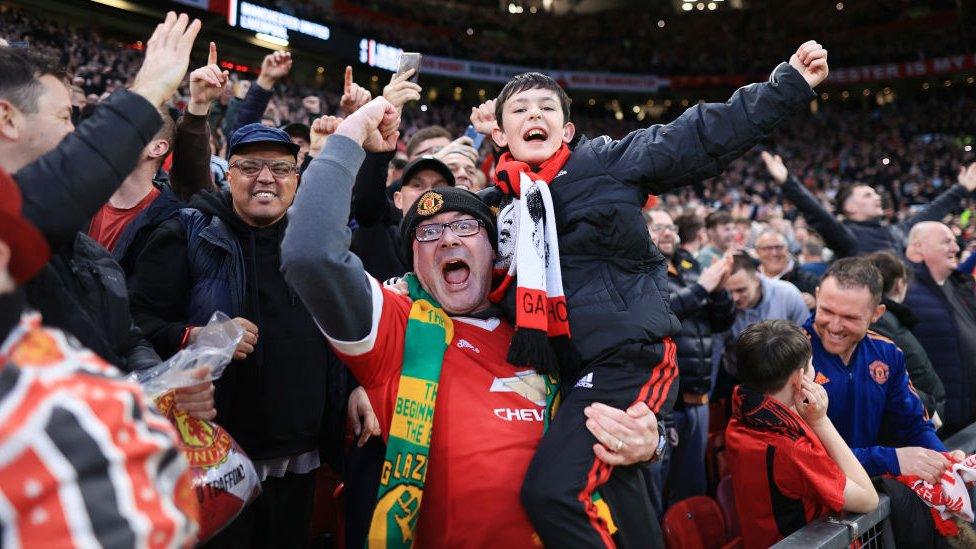RoboKlopp: How Liverpool is using AI to help with football tactics
- Published
- comments
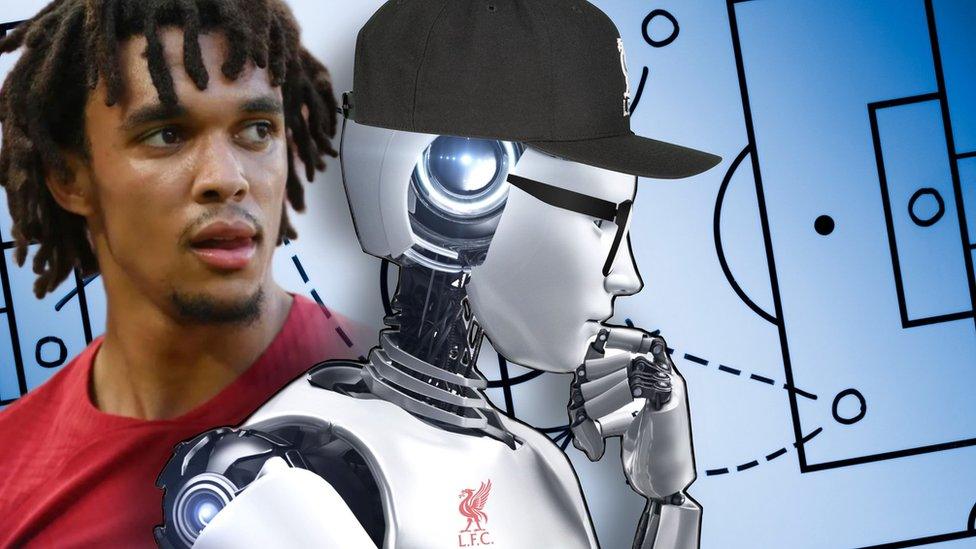
Would you trust artificial intelligence (AI) to coach your football team?
Liverpool football club has become one of the first teams in the world to use an AI system for football tactics at corner kicks, called TacticAI.
Since working with the Google-owned UK artificial intelligence (AI) lab called DeepMind, coaches and video analysts at the club have favoured the AI's tactical suggestions in 90% of corner kick scenarios.
How does AI football coaching work?
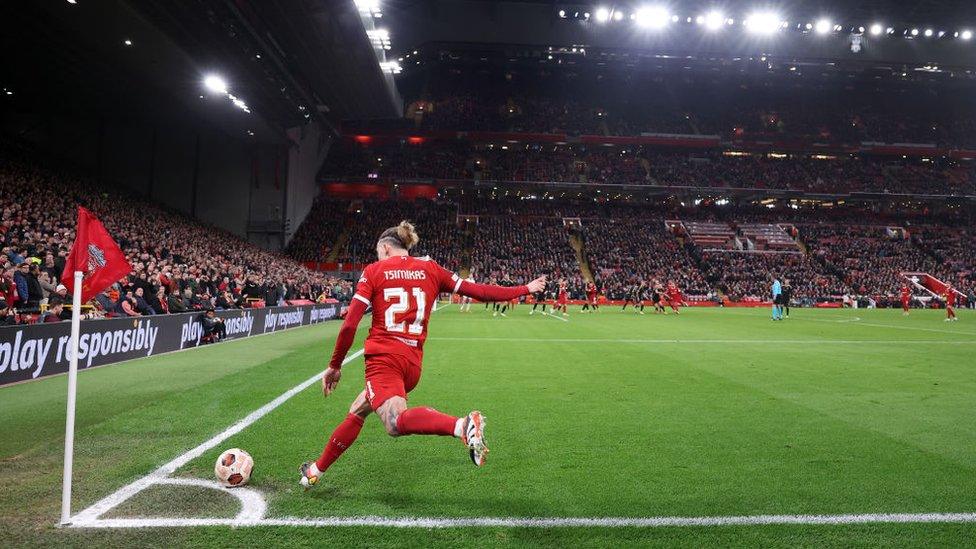
Before a corner kick is taken, play stops and players on both teams are able to position themselves to either attack the ball, to score a goal, or defend to clear the ball from the penalty area.
The way the players are set-up during corner-kicks is often coached in training sessions before games. TacticAI helps by offering new ideas and suggestions for tactics when corners are being taken.
It does this having analysed more than 7,000 corner kicks taken in Premier League matches since 2020.
It then predicts which player is most likely to get the ball, whether there will be a shot on goal, and gives advice on the position of players to increase or decrease the chances of a goal being scored.
How does artificial intelligence work?
'A challenging problem'
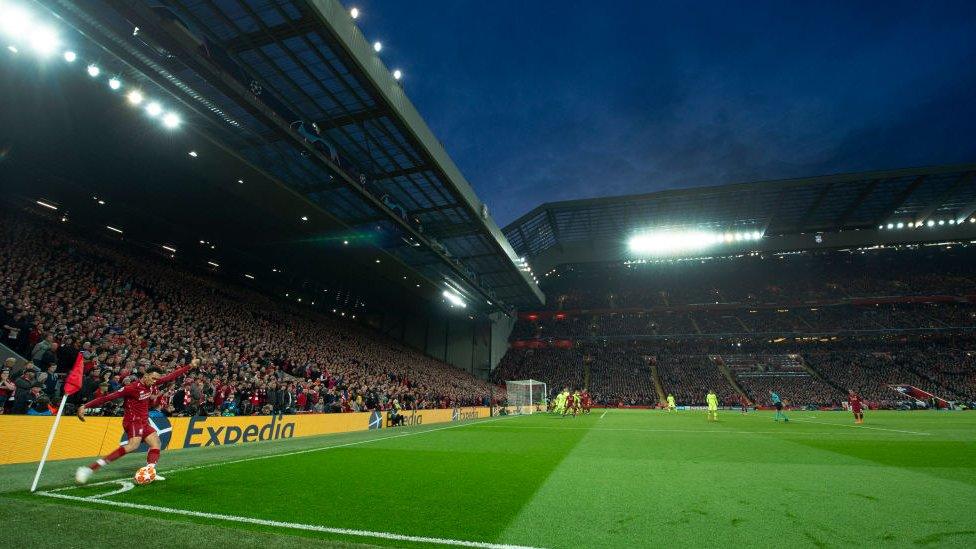
Trent Alexander-Arnold takes a corner during the UEFA Champions League Semi Final second leg match between Liverpool and Barcelona in May, 2019
What the AI can't do is help with on-field decisions made instantly in real-time.
In 2019, one of Liverpool's most famous moments involving a corner kick that wasn't trained for, coached or pre-planned at all.
In a Champions League semi-final, Trent Alexander-Arnold instinctively and quickly passed the ball into the box for Divock Origi to score in an epic comeback against Barcelona.
"We had not practised it beforehand. I saw an opportunity and I took it," Alexander-Arnold said at the time.
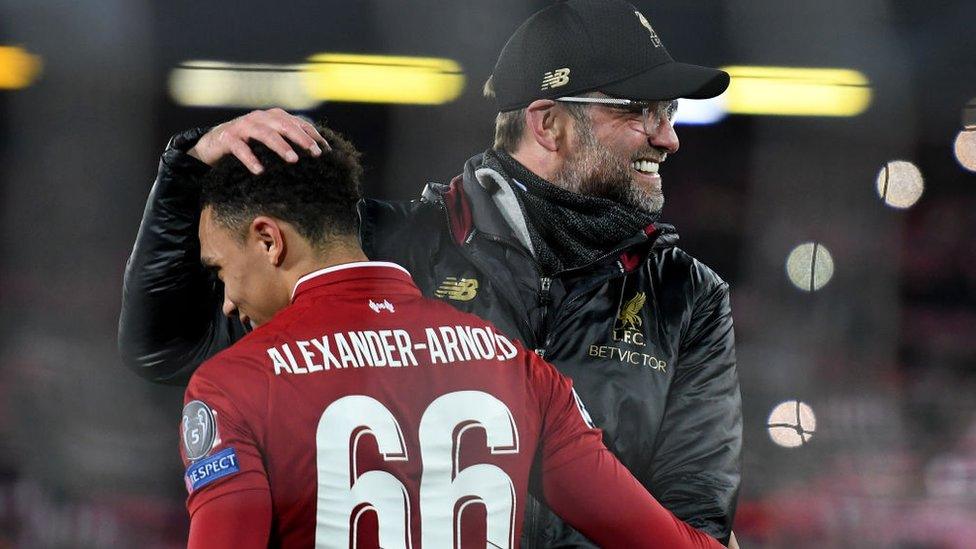
Offsides - in Fifa and Uefa competitions advanced ball-tracking AI technology has been used for offside decisions.
Player monitoring - AI is used to help with scouting and recruitment of players, analysing huge amounts of data such as player statistics, movements, and passing patterns.
On that occasion, if the AI had been in use, it wouldn't have been able to predict the unique or sometimes random set of circumstances that led to a player - in this case Alexander-Arnold - making a quick decision resulting in a goal.
It's something that developers are looking to improve says Petar Veličković, DeepMind researcher.
"What's exciting about it from an AI perspective is that football is a very dynamic game with lots of unobserved factors that influence outcomes.
"It's a really challenging problem."
FA Cup: The final moments of Manchester United v Liverpool
More recently on Sunday in an FA Cup quarter-final at Old Trafford, Liverpool faced their arch-rivals Manchester United.
With the score level, Liverpool won a corner in the last seconds of extra-time. The team chose to take a risk - with almost all outfield players in the penalty area - knowing a goal would win them the game.
However the ball was cleared and it was Manchester United who counter-attacked to score the winning goal.
It's not known whether Liverpool's manager Jürgen Klopp considered AI advice in the final seconds of the match, but the decision to play an attacking corner backfired - proving that football can be just as unpredictable for human coaches and artificial ones.
What do you think? Would you trust AI to help you in your matches? Let us know in the comments.
- Published18 March 2024
